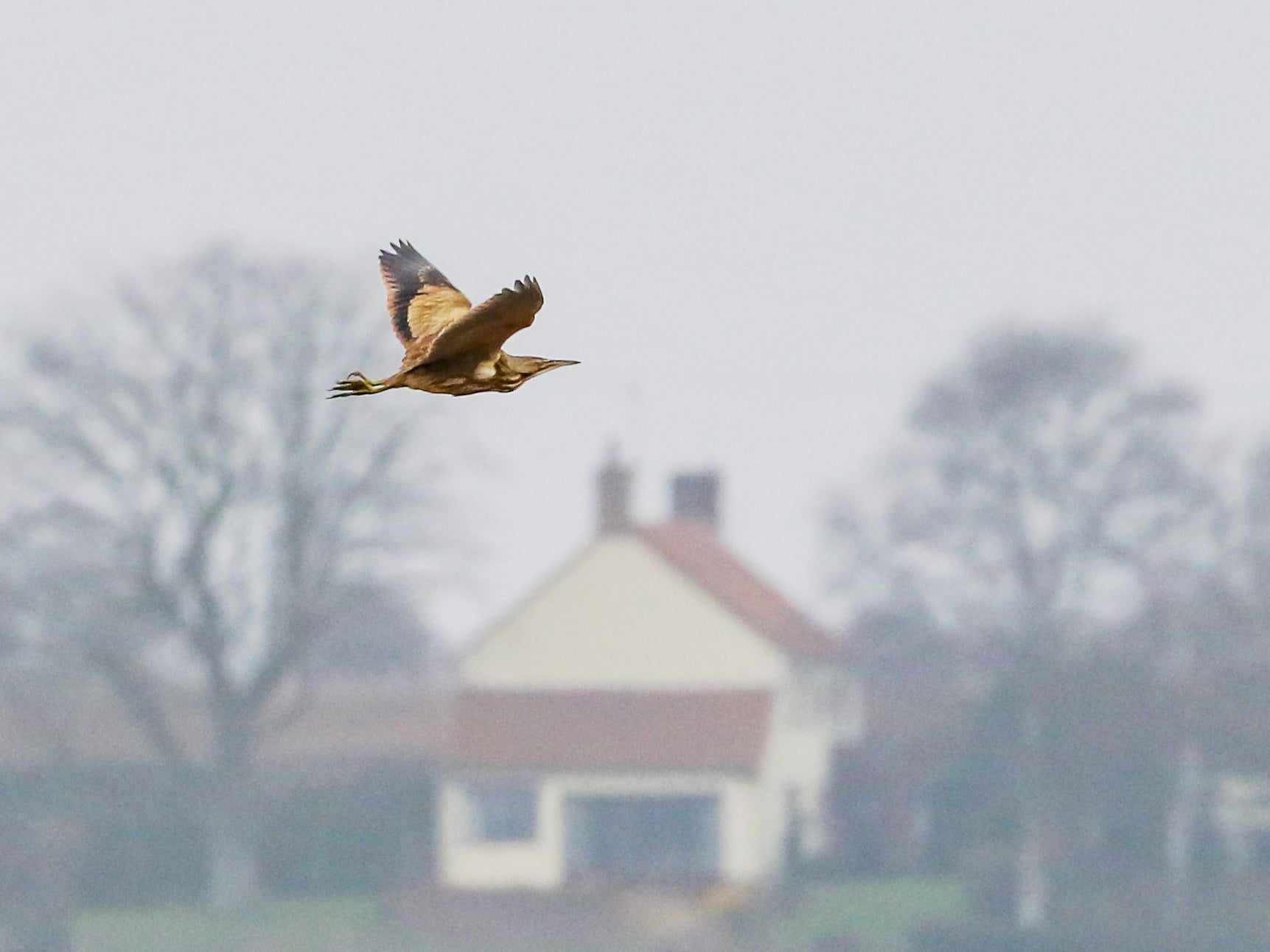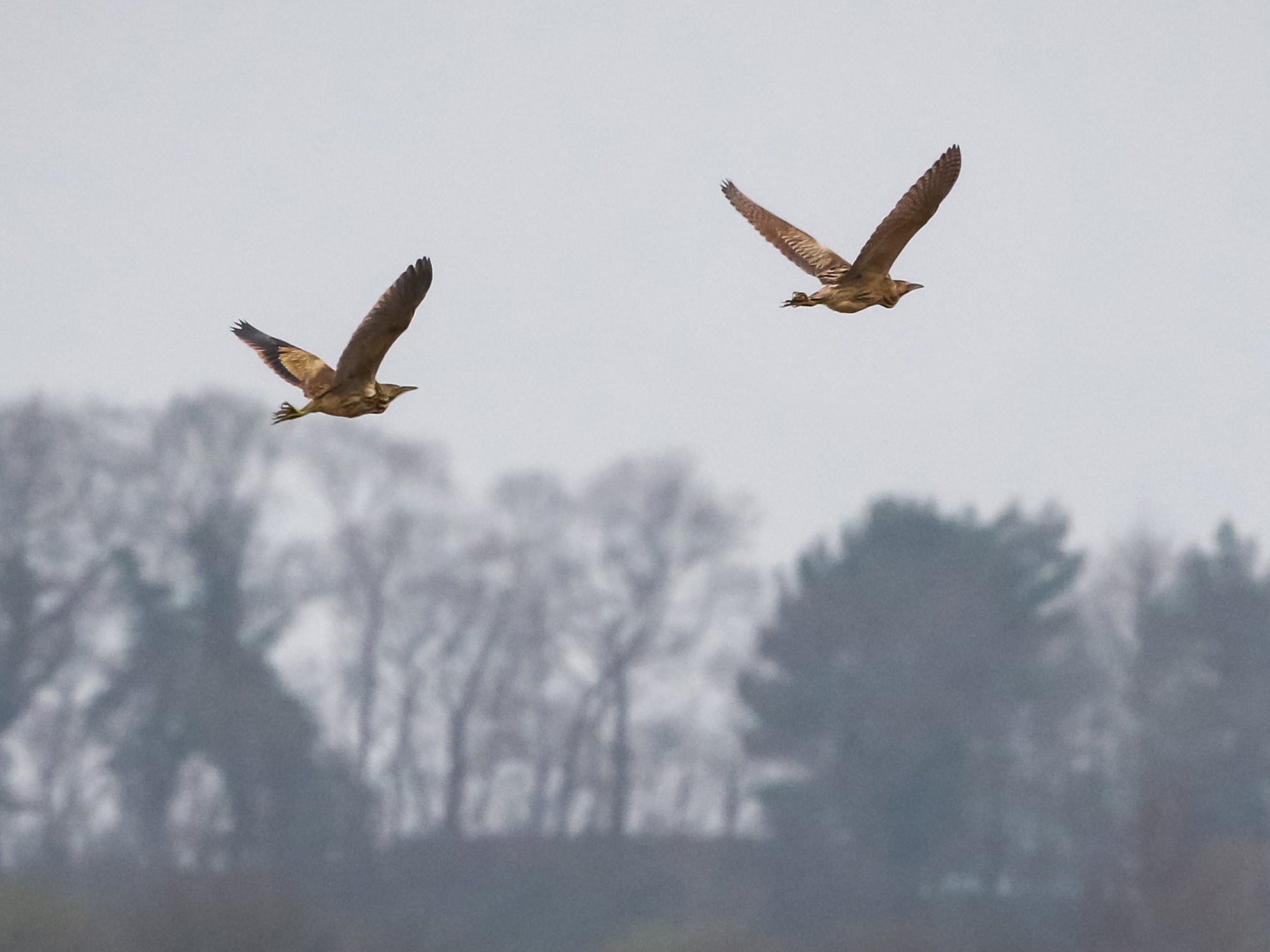Rarely seen American bittern spotted in UK for first time in eight years
Lucky birdwatchers spot wading bird flying alongside its European cousin in Suffolk

Hundreds of bird watchers flocked to Britain after an American bittern was spotted for the first time in almost a decade.
People came from across Europe to catch a glimpse of the bird, which is believed not to have been seen in the UK since 2010.
It was first sighted on Saturday evening flying above the reeds in Carlton Marshes, Suffolk; the first time it has been recorded in the county.
After reports of the sighting were posted on social media, admirers arrived in droves to see the bird for themselves.
Photographer Jeff Higgott captured an image of the wading bird in flight after waiting by the reeds for more than six hours.
The 52-year-old said: “I saw it on Sunday evening at about 4.30pm and again yesterday [Monday] around 5pm after six hours.”
In one picture, the American bittern can be seen flying close to a Eurasian bittern, a close relative that is far more common in the region.
Both birds are known for their distinctive and loud booming calls.

They can be difficult to spot in the reed beds they inhabit due to their effective camouflage.
Mr Higgott added: “It has been quite elusive. When it flew with the Eurasian bittern, there were about 60 people there at the time who got a look at it.
“It was hard to get that shot.”
The American bittern is a species of wading bird from the heron family which breeds in Canada and the northern and central parts of the United States.
SWNS
Join our commenting forum
Join thought-provoking conversations, follow other Independent readers and see their replies
Comments
Bookmark popover
Removed from bookmarks